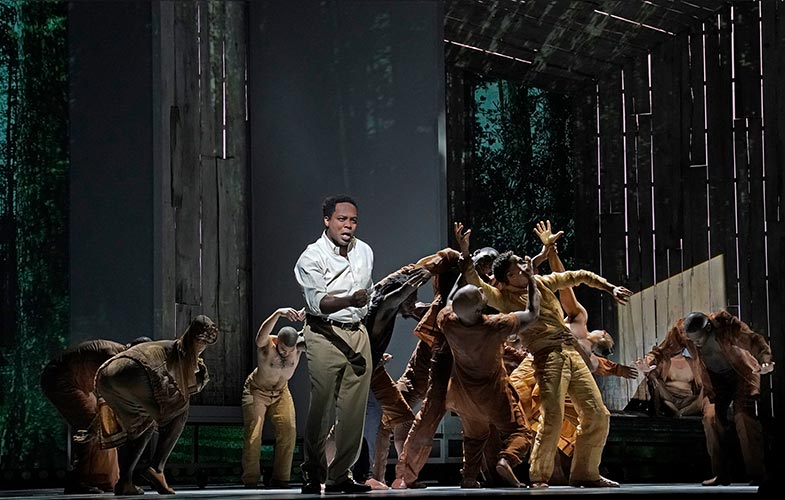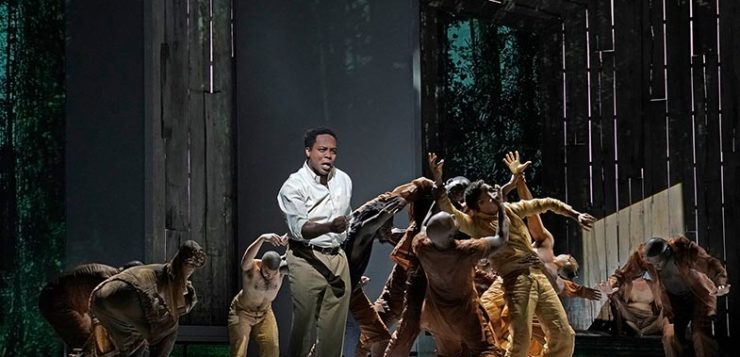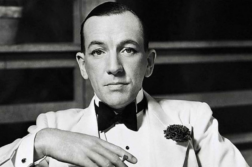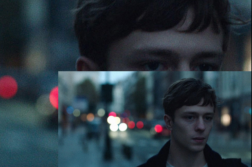
Based on Charles M. Blow’s memoir Fire Shut Up in My Bones, which is about growing up poor and Black, as well as being sexually abused, Terence Blanchard’s emotionally charged opera opened the Met’s 2021–22 season (after a year and a half of darkness), making it the first opera by a Black composer to appear at the Met. PBS broadcast the opera nationally in early April as part of its Great Performances at the Met series. With libretto by Kasi Lemmons, the production was codirected by James Robinson and Camille A. Brown, who also did the choreography.
The narrative follows a young Charles as he remembers his childhood, the youngest of five boys, and the traumatic moment that still haunts him. While the opera doesn’t explicitly mention Blow’s bisexuality, which he describes in his memoir as sexual feelings towards men, not physically acted on until he graduated college, there are hints of it throughout. Act 2 opens with male dancers spinning and moving about the adult Charles. Two of them embrace each other, while Charles, played by Will Liverman, rests his head on another’s chest. As they pass through, they reach out to touch him. The scene is a tender and beautiful one in a tale otherwise filled with sadness. Liverman sings later of “beautiful visions” that tempt him.
Liverman fills the room with Charles’ pain and anger. The opera opens with him holding a pistol, singing of his wish that “the part of me that despises myself will finally die.” Of his childhood he sings that he was “a boy of peculiar grace,” which in his world was “dangerous.” At the end of Act 1, he curls up on the floor, weeping.
Walter Russell III plays the young Charles, Char’es-Baby, as a boy yearning for love and attention. Early on, his mother Billie (Latonia Moore) tells him “Don’t skip like that,” and his brothers call him “mama’s boy.” Often left on his own, he imagines a world in which “there might be time for me.” Many LGBT viewers might recognize their younger selves in this boy. Latonia Moore gives a fierce determination to Charles’ mother Billie. She fires her pistol in the air after finding her husband Spinner (Chauncy Packer) up to his old womanizing tricks. Determined to make a better life for her sons, she sings passionately of “leaving it all in the road,” letting go of her pain, and moving on.
Chris Kenney brings a swagger to his role as Chester, the cousin who shares a bedroom with Char’es Baby’s. He befriends the boy, singing “rules don’t apply to you and I.” He turns vicious after the incident when Char’es refuses to continue, calling him “a punk” and threatening him. Ryan Speedo Green plays Char’es’ Uncle Paul with a deep, booming singing voice. He builds up the boy, teaching him about working the soil.
Angel Blue has several roles. As personifications of Destiny and Loneliness, she is a siren, smiling as she sings of Charles returning home to “get what you came for.” As Greta, whom Charles falls in love with, she is full of the intimacy he longs for, whom he reveals his secret to. She has secrets as well, though, that make their relationship fraught.
Set Designer Allen Moyer represents Charles’ childhood home as a large wooden room, while Projection Designer Greg Emetaz throws images of a small shack behind it, as well as a picture of Char’es-Baby during the molestation scene. Costume Designer Paul Tazewell’s outfits are simple but effective, with Charles and Char’es-Baby both wearing khakis and a white dress shirt.
Directors James Robinson and Camille A. Brown keep the drama high with much movement. The dancers in particular are beautiful to watch. In Act 3, they play college fraternity brothers with a swagger and energy more like contemporary dance than opera. The molestation scene plays out quietly, implying more than demonstrating—an approach that leaves unanswered the question of what exactly happened that made the experience so traumatic.
Fire Shut Up in My Bones should be celebrated for its emotional power, and for its potential to bring more Black audiences to opera houses. However, it feels like a missed opportunity not to openly depict Blow’s bisexual longings and his struggle growing up to contain them, which his memoir movingly describes. This suppression of LGBT themes could be a function of a certain conservatism in opera as an art form, or it could be a choice by Blanchard and Lemmons. The fact that the sexual abuse by a male cousin plays such a prominent role in the opera does little to rectify this deficiency.
Charles Green is a regular book reviewer for The G&LR.







Discussion4 Comments
Disagree completely regarding the “depiction” of his bisexuality. I don’t need to see two man rolling around naked to know they are interacting sexually.
There are plenty of indications (as enumerated by the reviewer.
Not everything needs to be spelled out and/or shown in order for the audience to understand.
I agree that “not everything needs to be spelled out”, especially regarding sexuality. However, the opera openly talks about Charles’ sexual encounters with women, with his brothers singing about his first time, while his feelings towards men are only hinted at, with references to “beautiful visions” and a dream of shirtless, dancing men. Blow writes a great deal about his complex attractions to men in his memoir, so for this opera to show it in this indirect way feels like it leaves out a large part of his story. It also seems to suggest that same-sex desire should not be presented onstage, at least in the same way as heterosexual longings.
Agree wholeheartedly with your opinion. It seems Rugby8’s comment seems to say more about his own discomfort with with seeing same-sex desire. His statement indicates, to me, that he does not find depictions of heterosexual longings similarly discomfiting. I suspect his opinion depends upon whose ox is being gored (his).
Sexuality need not be spelled out to be explicitly expressed to be an important part of a drama or opera. However, it has traditionally been only hinted at, as in operas such as Billy Budd, to avoid offending the sensitivities of those such as Rugby8, thereby denying honest portrayals of those, like me, who grew up with queer longings. We, who have grown up feeling such”homosexual longings” should not be marginalized or relegated to the shadows in order to spare the feelings of the differently oriented.
If art imitates life, then, this opera imitates the complicated life story of a man who was tortured by how to manage his closet in a time and place that militated against any frank and open telling of what he endured. The dilemma of bisexual or gay men, during the time of this story in a rural Louisiana setting, is just how they must try to find self-fulfillment sexually while the social energy around them forces them to retreat into the closet and lose battles with any attempts at open sexual expression. The opera achieves that dilemma in astounding ways. Many audiences members were introduced for the first time how black fraternities function dysfunctionally. The opera demonstrates how a black gay man had to straddle several racial, sexual, religious fences just to pledge a fraternity. This rite of passage is densely populated with angst because this college kid was striving to be “straight” normal. No matter how he tried, he failed to find that normalcy. The opera achieves exposing this tangle of impossibilities in art that is as raw as it is real. My husband and I traveled from California to New York only for the purpose of seeing this opera. We were not for one minute disappointed in this production or with the truth of the story.